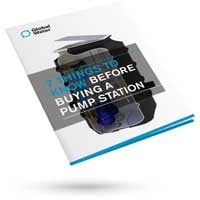Discover the impact of untreated stormwater pollution on our waterways and environment.

Stormwater run-off is generated when rainwater is not able to soak into the ground due to infrastructure or ‘hard’ surfaces. This water runs over land either directly or though pipes and drains to waterways and bays collecting gross pollutants and fine silt along the way.
In urban areas, rain that falls on house roofs, paved areas (driveways, roads and footpaths) and flows from saturated gardens and parklands are carried through drainage system to waterways and the ocean.
Why is stormwater pollution an issue?
As stormwater travels over the land, it picks up chemicals and sediments that are otherwise not naturally found in our waterways. Some of these are poisonous, whilst others like nutrients are not poisonous but may be collected in larger quantities that our ecosystem cannot cope with.
Main pollutants found in stormwater
Stormwater pollution can be classified into three categories:
- Organic – leaves, grass clippings and sediment;
- Chemicals & Hydrocarbons – detergents, coolant, oil, grease, fertilizer and paint;
- Litter – plastic bags, chip wrappers, plastic and cigarette butts.
Environmental impact of stormwater pollution
The environmental impact of stormwater pollution depends on the severity of the pollutants. Some of the environmental impacts of stormwater pollution are:
- Animal/Human Waste: increased nutrient levels in stormwater can lead to an increase in toxic algal blooms.
- Dissolved Solids (salinity): effects chemical balance of waterways – which may kill some aquatic plants and animals.
- Heavy metals (cadmium, copper, zinc, lead): have toxic effects on aquatic plants and animals – can build up in aquatic species and have a dangerous impact on the food chain.
- High runoff rates: increased pollution of waterways and erosion of creek banks effects aquatic flora and fauna.
- Litter: toxins present in this litter can kill fish, dolphins and birds. When litter decays it can reduce the water oxygen levels and kill aquatic animals and plants.
- Nutrients (nitrogen and phosphorous): promotes toxic and non-toxic algal blooms. These reduce the amount of light and oxygen in the water. These nutrients can promote unwanted weed growth.
- Oil and grease: form a film over the water which makes it difficult for plans and aquatic animals to breath.
- Sediment (soil, sand, clay and dust): plants that live on the bottom of rivers, creeks and the sea can be smothered by this sediment.
In order to mitigate the effect of stormwater pollution, Global Water offers developers stormwater treatment tools that have been assessed and approved by many Australian local councils and assist in meeting EPA pollution guidelines from the Environmental Protection (Water Quality) Policy 2015.
Key extracts from this policy outline the following legal requirements:
Division 1 - 9 - General environment duty (section 25 of Act)
- The provisions that a person must comply with in taking all reasonable and practicable measures to prevent or minimise environmental harm resulting from undertaking an activity that pollutes or might pollute waters.
Division 2 - Offences: 10 - Class 1 Pollutants:
- (1) A person must not discharge a class 1 pollutant into any waters or onto land in a place which is reasonably likely to enter the waters.
Through the implementation of stormwater bypass interceptors or gross pollutant traps you are achieving primary and secondary filtration. Many of these enable you to complete the first and second phase of stormwater treatment and are approved by water authorities.
For more information on the benefits of effective stormwater management, or to find out how Global Water can help you implement stormwater treatment, contact our team today!
Tags: Stormwater




